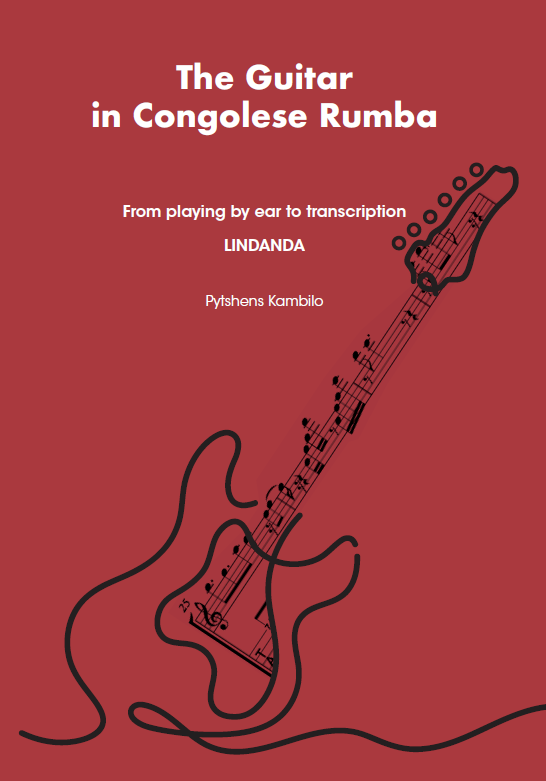The roots of Congolese rumba can be found in traditional music. It was influenced by the transatlantic slave trade, slavery, and colonisation. Rumba is both the witness and heir of the history of Congo.
Pytshens Kambilo puts a spotlight on the guitar – lindanda, in Lingala. Despite its central role in rumba, the guitar and its artists, aside from a few famous ones, have often stood in the shadow of the vocals and lyrics. This project is also a homage to the great guitarists and their skill. The performance will cover some of their most emblematic tracks, interpreted by peerless musicians:
- Pytshens Kambilo - Guitar
- Costa Mbunda - Guitar
- Diego Higuera - Guitar
- Émile Petit Poisson – Guitar
- Rodriguez Vangama – Guitar
- Florence Kraus – Saxophone
- Sam Saloom - Bass
- Thierry Nguiegui Massamba - Percussions
- Yannick Koy – Vocals
- Boule Mpanya – Vocals
About the book
The Guitar in Congolese Rumba. From playing by ear to transcription.
LINDANDA

Lindanda ('guitar' in Lingala) is a scholarly work aimed at identifying guitar scores in Congolese rumba pieces and making them available digitally or in print to allow everyone to access this often-unwritten repertoire that is an integral part of Congolese culture and heritage. Additional research, particularly on the history of the music, rounds out the book. The author conducted research in the sound archives and collections of the AfricaMuseum during a 2022-2023 artist residency.
About the author
A guitarist, singer, and writer-composer-interpreter born in Kinshasa, Zaïre in 1977, Pytshens Kambilo has recorded four solo albums (Kobanga Te !, 2007; Ndoa, 2008; To Loba Vérité, 2010; Silikoti, 2014) and collaborated with musicians and artists from all walks of life (Jean Goubald, Gaël Faye, Ray Lema, So Kalmery, Bebson de la Rue, Faustin Linyekula, Sammy Baloji, Fiston Mwanza Mujila, Serge Kakudji, Freddy Massamba, Gaëlle Côte, Vitshois Mwilambwe). He teaches and transcribes Congolese music (staff notation and jazz tablature). In Kinshasa, he initiated Lindanda, a music festival celebrating instrumental musicians, particularly guitarists. In France, he created ARKO (Académie de la Rumba congolaise) to promote all aspects of Congolese culture.